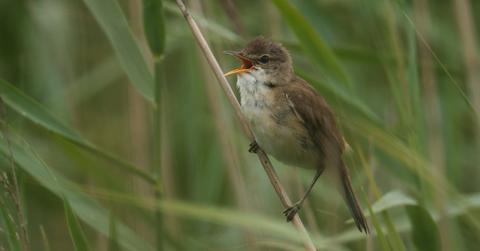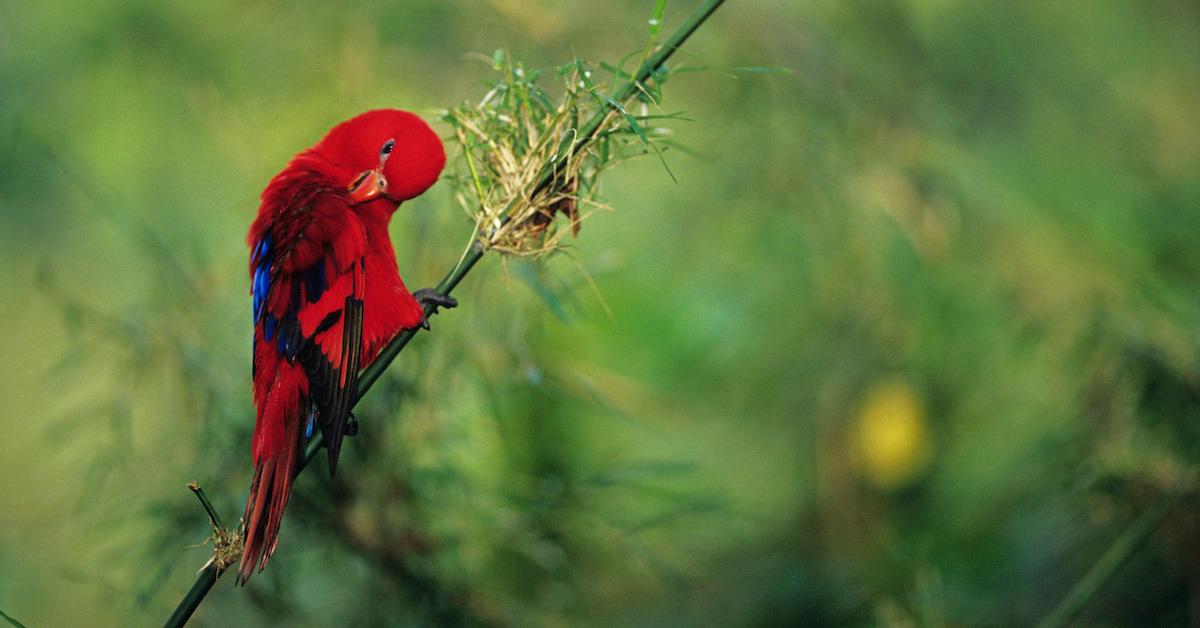49 Percent of the World's Bird Species Are Declining, Report Finds
Published Sept. 28 2022, 11:49 a.m. ET

As climate change intensifies across the planet, many species face the possibility of a mass extinction — and one particularly at-risk species group is birds. According to a new report, bird population decline has grown so severe in recent years that about half of the world’s bird species are decreasing.
And that’s not all: Many bird species have gone extinct over the years, and many others are facing extinction, too. Keep reading for the details on this study — as well as what we can do about this.

The bird population decline in recent years has been devastating.
BirdLife International just published the fifth edition of its State of the World’s Birds report. The last edition was published four years ago, in 2018.
The central finding of the report is that overall, one in eight bird species — 12.5 percent — is “threatened with extinction.”
Using data from the IUCN Red List, BirdLife International also found that 5,412 bird species around the world — representing 49 percent of the total bird species — are declining in population.
Additionally, 4,234 bird species (38 percent of the total bird species) are classified as stable, and only 659 bird species (6 percent) are increasing. The trends of the remaining 693 species (6 percent) are unknown.
Not only are these figures staggering on their own, but they also reveal a lot about the health of planet Earth.
Bird populations can tell us a lot about the health of the planet.
According to BirdLife International, birds are “an excellent barometer for planetary health,” as well as strong indicators of trends in biodiversity and nature’s ecosystems. That’s because birds are so extensively spread out across the Earth, easy to study, and fairly reactive to changes in their environment.
BirdLife has been documenting birds’ threats for the past century, but the organization also gave a shoutout to birdwatchers, who have contributed tons of data over the years.
What is causing the bird population to decline?
The BirdLife report primarily attributes the bird population decline to a number of factors related to climate change, including:
The growth of the agricultural industry
Environmentally-damaging logging (which can lead to deforestation)
The rising prevalence of invasive species
Overexploitation and illegal killing of birds
Bycatch from the fishing industry (which often kills seabirds)
Development of buildings
Worsening wildfires
“Poorly planned” energy production, aka fossil fuel extraction.
The climate crisis touches so many aspects life on Earth — not only are bird populations declining, but so are many other animal, insect, and plant species. In fact, the Center for Biological Diversity, estimates that if we stay on the current path, 70 percent of the current animal and plant species on Earth could face extinction by the end of the century.
How to protect birds:
“Fortunately, we know what actions are needed to reverse these losses and to help nature to recover,” BirdLife writes. The No. 1 action that the organization believes is needed is working to conserve and manage Important Bird and Biodiversity Areas (IBAs) around the world.
Additionally, BirdLife believes that work must be done to fight off things that threaten birds — so we must work to stop the illegal killing of birds; prevent the spread of invasive species; fight bycatch in the fishing industry; and reduce harm in the energy industry (primarily, from fossil fuels).
BirdLife has a lot of these goals listed as part of its 2030 targets to improve the “perilous state” of bird species around the world.
While most of this work will be done from conservationists, industry leaders, and governments, individuals can do their part as well. Don’t plant invasive species; avoid eating birds and fish; support local agriculture; and rely on renewable energy rather than fossil fuels when possible.